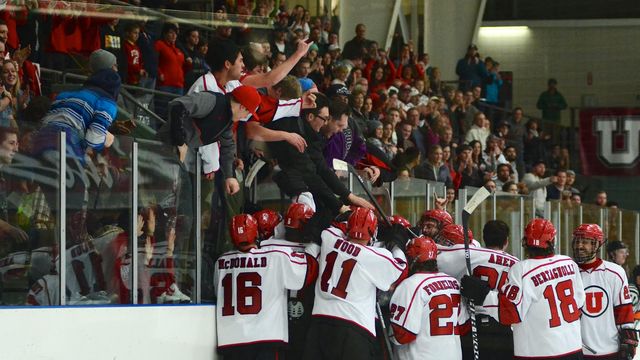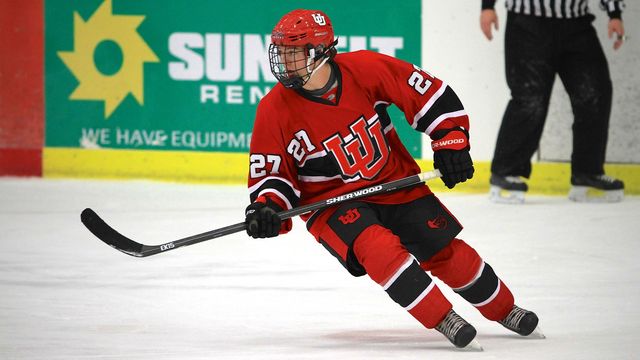The U’s hockey program has moved up to Division 1, bringing the team closer to the NCAA.
After evaluating the hockey team during the 2014/2015 season, program officials filed paperwork to move to the more difficult division in the fall. The American Collegiate Hockey Association approved the request, and the team will compete in Division 1 during the 2016-2017 season.
A.J. Boldan, U Hockey president and general manager, said in order to move forward, a program must demonstrate stability and have a good reputation for “providing a quality product.”

Compared to the previous 200 teams, the new division is composed of 60. While the move will bring adjustments during the season, team management will not impose any drastic training changes.
Brett Huras, U Hockey head coach, said, “The actual training itself really won’t change … but we already expect a certain high level of professionalism from the kids.”
Currently, practices are 90 minutes on Mondays and Wednesdays, and athletes train on their own with an off-season program. The increased difficulty of competitions may require an extra practice each week and more team activities throughout the year, Boldan said.
The program began in 2006 as a recreational club; the following year, management turned it into a competitive team. Since then, the team has hosted national championships and had four straight winning seasons from 2011 forward.
During the 2011-2012 season, there was “true magic in the locker room,” Boldan said.

Now there are 600 to 700 season ticket holders and an average of more than 1,000 fans attend each game. The program has become the fourth PAC-12 team to move to Division 1, along with Arizona, Arizona State and Colorado.
The team also has a focus on education. The average GPA is 3.1, and of the 25 players, eight to 10 generally make the Dean’s List each semester.
“The focus on academic and athletic leadership is really what we instituted moving forward,” Boldan said. “Hockey in college is just one chapter in a person’s life.”
Now the focus is on the national tournament in March, Boldan said.
“We need to understand that it’s a process,” Boldan said. “All we need to do is grow and focus … and we should be just fine.”
@sarahnlegg


